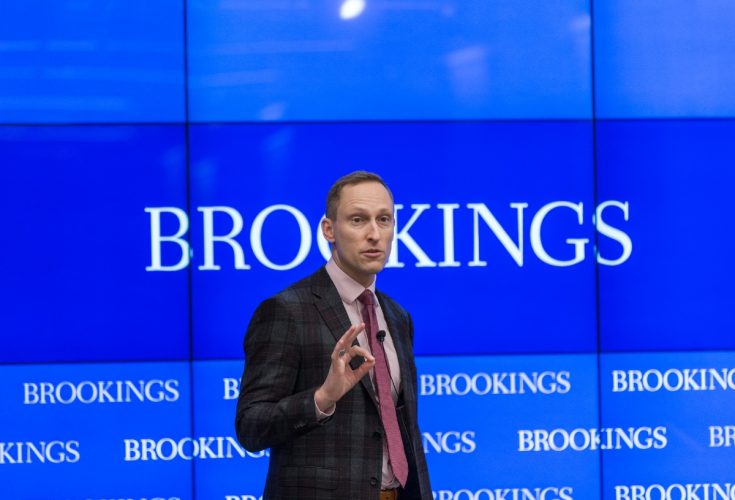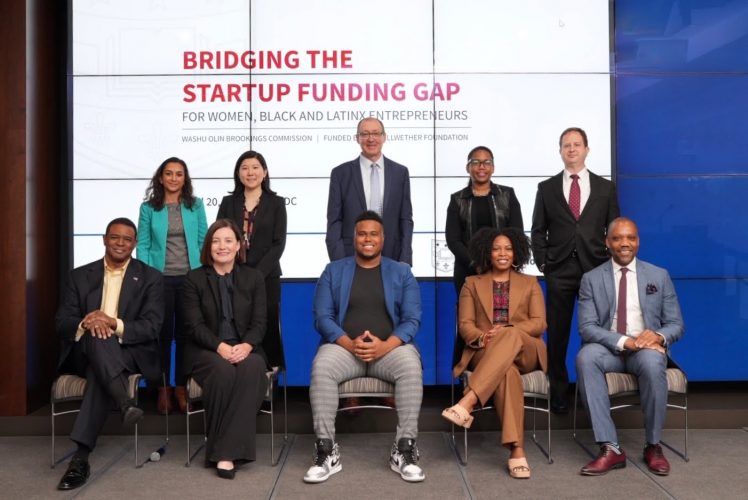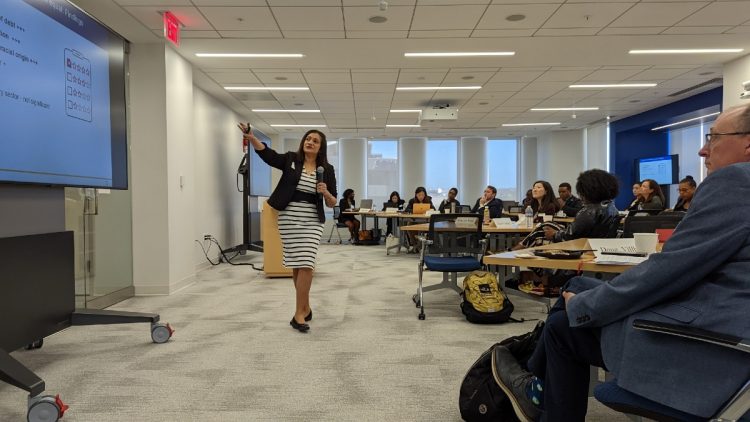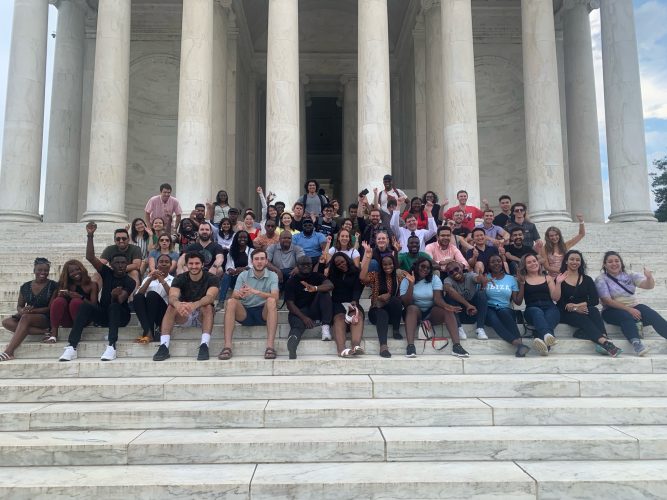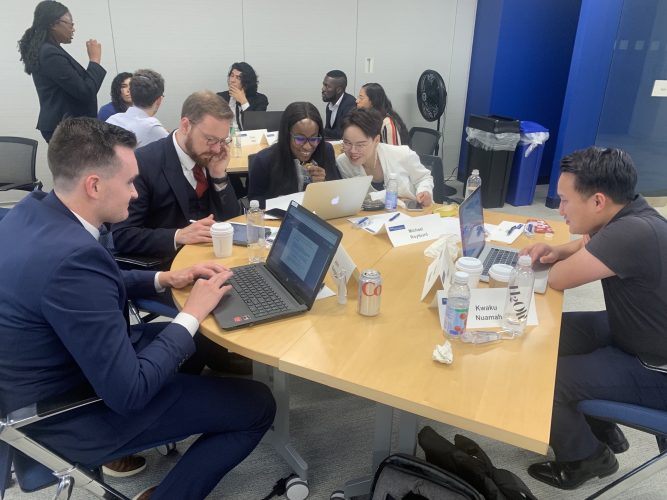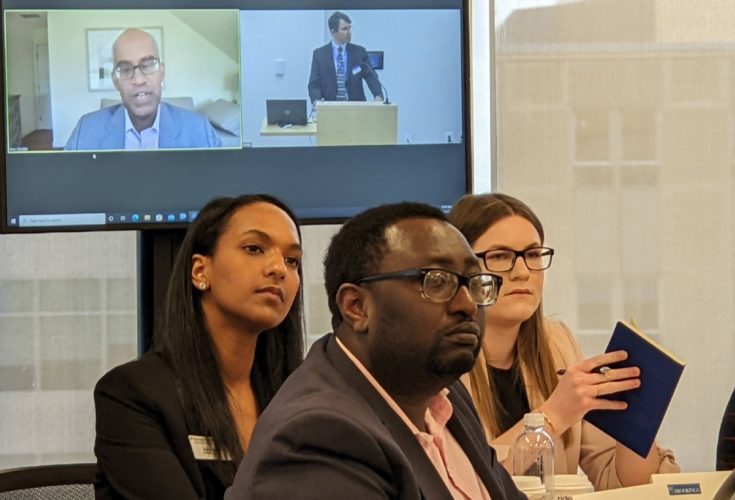The partnership between Washington University and the Brookings Institution in Washington, DC, goes back a long way. Back in 1916, a St. Louis business leader named Robert S. Brookings founded the first private organization to study public service and nurture future public leaders. From that point on, the Brookings Institution became a community home for anyone looking to learn about government and a service-driven career.
Robert Brookings was also head of Washington University’s governing board for more than three decades (1895-1928). Seventy seven years after his passing, the Brookings Institution and Olin Business School joined in partnership to offer a new program in 2009, now known as WashU at Brookings.
In this program, leadership education brings the worlds of government and business together. The program focuses on the principle that the development of leaders is always about service and purpose. Leaders who are purpose-driven will contribute to their communities, help colleagues to advance in their careers, and educate and inspire others to think globally.
What can students expect from the ‘WashU at Brookings’ program?
The WashU at Brookings program combines the environments of business and government and acknowledges the intersection of these two fundamental bodies of knowledge. Through this self-aware approach, the program empowers students to develop skill sets for both worlds.
Students will experience this intersection for themselves to gain a level of insight into the business and government relationship beyond just news coverage. Students study firsthand the impact of government policies on business, the way think tanks work, and how policymakers are solving problems from different viewpoints.
How does this work in practice?
Learn from leaders about national or international topics
The program offers unique access to leaders. Washington, D.C., is the physical meeting point of business and government, and it can connect a student to the exceptional thinkers they need to learn from.
Need to talk to somebody who’s an expert on Thailand’s economy? You can find them here. Need a source from the IMF or the World Bank? They’re here. Students get to connect with people who actually have a working role in building policy for emerging economies. Learning from lived experience is highly valuable for students and sets them up to move from MBA to careers in government.
Be part of interactive discussions
Students have the opportunity to participate in interactive discussions with the people that they would normally see on CNN or FOX. The learning they can have in the WashU at Brookings program is not just a lecture series; students ask questions specific to their own research and business interests. Students can follow up and seek deeper understanding during discussions, and they can get frank answers they wouldn’t hear anywhere else.
Benefit from a wider perspective
On top of these relationships with influential people and organizations, WashU at Brookings gives students the perspective to see the forest for the trees, to understand how everything fits together.
An MBA from a program focused on global business can show a future leader what working in a real global business environment will be like, complete with obstacles and issues. Learning about the impact of government policies on business takes them one step further. If you talk to the people leading large companies, the most important issues that are facing them will often involve government. From an airplane manufacturer to a pharmaceutical company, governing rules and regulations are one of the most impactful elements in their success.
Shape a varied career
The WashU at Brookings program inevitably helps to shape a student’s career trajectory. The first thing to note is that the program can help set up and support government jobs for MBA graduates, something many students will be thinking about before they even enter the MBA program. By having real experiences, students will get a leg up when submitting their job applications.
The business and government relationship will also inform how students plan and carry out their career choices. From the relationships they form with policymakers, government workers, business leaders, and other networks in D.C. to the real-life topics they uncover during discussions, students can see the paths others have taken before them to get to their dream jobs.
How will the Brookings perspective impact the rest of the MBA experience?
The skills and perspectives gained during the program ultimately impact the rest of the MBA experience for students, and this is one of its biggest advantages.
The practical education they receive helps students right away. Take regulatory issues, for example. When we were creating the program, we thought hard about how students would be able to gain practical skills to help them understand and navigate regulatory issues in their future business plans.
In many cases, leaders can actually go in and talk with regulators. Regulators want to get their jobs right and don’t want to implement policies that hurt society. In this way, educated MBA students can actively influence regulation in their spaces and learn how regulators make their decisions.
But perhaps the most important and lasting impact of the Brookings experience is the perspective that students take into the rest of their MBA and beyond — the perspective that learning about business and government can fundamentally change the country and the world. Students gain a better sense of how they can get involved in serving our society and will be equipped with the skills and tools to do so.
Pictured above: Olin’s Lamar Pierce, Beverly and James Hance Professor of Strategy, teaching at the Brookings Institution.


